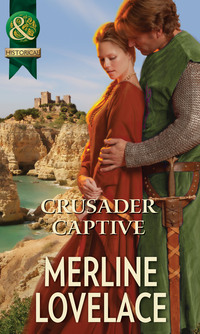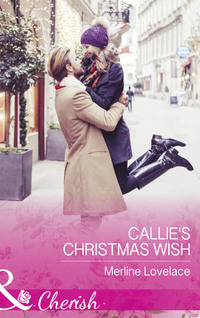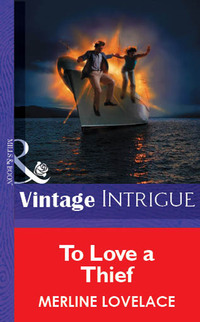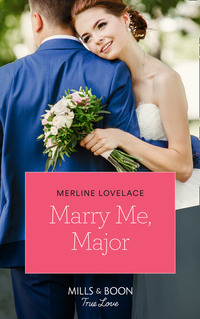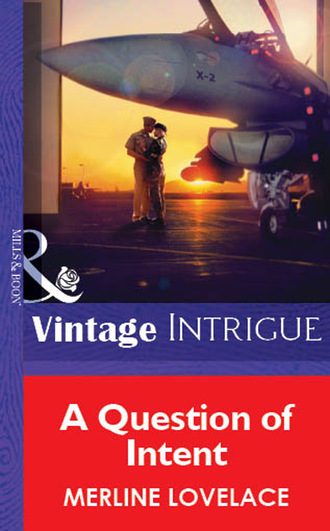
Полная версия
A Question of Intent
He wasn’t about to admit he’d stopped out here in the middle of nowhere in the vain hope of finding solace, though. Particularly to a tough, no-nonsense military cop.
Wrapping his hands around the steering wheel, he stared into the darkness and waited for the major’s vehicle to appear.
Chapter 2
Radioing ahead, Jill advised Navy Captain Sam Westfall that one of his key team leaders had appeared on the scene well ahead of his estimated time of arrival.
“I’m escorting Dr. Richardson to the compound now.”
“Good,” the commanding officer replied in his deep, gravelly bass. “Bring him to my quarters when you arrive.”
“Will do, sir.”
Hands on the ATV’s wheel, Jill navigated the dirt road shooting straight as an arrow across the desert. The headlights of Doc Richardson’s SUV speared through the darkness behind her.
“I don’t know about this guy,” she muttered to Goofy as she flicked a glance in the ATV’s rearview mirror. “He sure doesn’t look like any brilliant research scientist I ever stumbled across.”
Not that she’d stumbled across all that many. After the brutal assault in her freshman year and a subsequent bungled investigation by the campus police, Jill had made up her mind nothing like that would ever happen to her again. She’d switched her major to law enforcement and enrolled in every available self-defense course available off-campus. And once she’d been commissioned as a military police officer, she’d pretty well lived, breathed, eaten, and slept in her fatigues. She hardly knew anyone who wasn’t a cop, much less a brilliant scientist.
“Think I’ll take another look at his dossier,” she murmured to Goof. “Something about his roadside stop to drink in the stars just doesn’t sit right with me.”
Mickey’s pal bobbed his head in vigorous agreement, as he always did.
Some forty minutes later, Jill slowed for the first checkpoint. The MP who came out of the modular booth that served as a guard shack recognized her in the glare of the spot angled down from the shack’s roof. The sergeant saluted respectfully but still asked for ID. Jill handed him a flat leather case, pleased that he hadn’t let her pass on mere visual recognition.
He aimed a small electronic sensor at her face, then ran it over her holographic ID. The flat, credit card size bit of plastic contained an astonishing array of photo imaging, retinal scan data, fingerprints, DNA information, and a special code signifying Jill’s level of access within the compound. The card also contained a built-in signal transmitter that allowed the Control Center to track the movements of the person carrying it. When the card reader gave two soft pings, the sergeant handed her back the leather case.
“You’re cleared for entry, Major.”
“Thanks. I’m escorting Dr. Cody Richardson to the site,” she told him, pointing a thumb at the vehicle behind hers. “He’s on your key personnel list.”
“Yes, ma’am.”
The sergeant walked back to the idling SUV and requested the doc’s civilian ID. Angling his flashlight at Richardson, he scrutinized the physician’s face and compared it to the photo before taking the identification back into the guard post to check the access list. Tomorrow Jill would issue each of the cadre members a holographic ID similar to hers and considerably speed up the entry process.
After some moments the guard returned to Richardson’s vehicle and handed him back his ID. “Do you have a camera, computer, cell phone, or other electronic device in your vehicle, sir?”
“Just a cell phone.”
“Sorry, sir. I’ll have to take that.”
“Right.”
Reporting instructions had advised all cadre members not to bring their own computers or electronic notebooks. Encrypted versions would be issued to them. The same instructions had advised that personal cell phones used en route would have to be turned in on arrival. Any calls coming in to those phones would be routed through the Control Center to secure instruments on-site.
Once cleared, the doc followed Jill’s vehicle down another lonely five-mile stretch of road. The compound lights were mere pinpricks in the distance, almost indistinguishable from the bright wash of stars. Gradually, the pinpricks grew brighter and closer.
Jill stopped at a second checkpoint, this one guarding a cluster of prefabricated modular buildings and trailers surrounded by rolls of concertina wire. In the wash of lights mounted at regular intervals within the compound, the main site had all the charm and warmth of a lunar moonscape. There wasn’t a tree or a bush to be seen. White-painted rocks marked the roads and walkways between the buildings. Off in the distance, the hangar that would house Pegasus loomed over the rest of the structures like a big, brooding mammoth. Aside from a few picnic tables scattered among the trailers, everything was starkly functional.
Guards at the second checkpoint cleared Jill through. She waited once more for the doc, then drove across the compound to the trailer housing the commanding officer of the Pegasus test cadre. The Lincoln’s tires crunched on the hard-packed dirt as it pulled up beside her ATV. Cody Richardson climbed out, thudding the vehicle’s door shut, and gave her a questioning glance.
“These are Captain Westfall’s quarters,” Jill informed him. “He requested I bring you here.”
Nodding, Richardson followed her to the trailer. Jill’s knock brought Westfall to the door. The tall, spare Naval officer was still in his working khakis, which didn’t surprise her. The captain had only arrived on-site yesterday morning, but Jill had already formed the distinct impression he wasn’t the type to retire early or sleep late.
“This is Dr. Richardson, sir.”
She stepped aside, allowing the Public Health Service officer to brush by her and offer a crisp salute.
“Sorry I’m out of uniform, sir. I didn’t expect to report to you tonight.”
“Not a problem, Doc. Come in, come in.” Westfall speared Jill with one of his penetrating, steel-gray glances. “Thanks for delivering him, Major. Everything quiet out on the test range?”
“It is now.”
The captain raised a brow. Before Jill could elaborate, Richardson offered a cool explanation.
“The major and I ran into each other. Literally. I ate sand until she decided I was who I said I was.”
“Did you?” He tipped Jill an approving nod. “I’ll see you tomorrow at the in-brief.”
“Yes, sir.”
After an exchange of salutes, she made her way to her vehicle. Instead of driving back out to run the perimeter and check her patrols, however, she headed for the squat, dun-colored modular unit that served as her detachment’s headquarters and operations center.
A welcome blast of chilled air greeted her when she stepped inside, along with the even more welcome scent of fresh-brewed coffee. Rattler Control occupied the rear half of the unit; her cubbyhole of an office, the armory, and a small break area took up the front half.
She stopped at the armory first to turn in her rifle and ammo clips. That done, she made a beeline for the coffee. Filling a jet-black mug emblazoned with her unit’s self-designed crest—a rattlesnake coiled around the crossed Revolutionary-War-era pistols designating the MP Corps—she stuck her head inside the control center.
“I’ll be in my office for a while.”
“Yes, ma’am.” The lanky Oklahoman at the dispatch console spun his chair around. “That was some takedown out there.”
“Nothing like putting one of our own facedown in the dirt,” Jill agreed.
Specialist First Class Denton grinned. “I’m guessing that Public Health weenie will think twice before taking you on again.”
“I wouldn’t exactly classify Dr. Richardson as a weenie,” she replied, remembering the breadth of the man’s shoulders.
“Whatever he is, he’s the first to get a taste of Rattler venom. Good goin’, Major.”
Jill bowed to the inevitable. She knew the story of her brief confrontation with Cody Richardson was going to be repeated—and greatly exaggerated—by every one of her troops. Which wasn’t necessarily all that bad. She was long past the point of having to prove herself to either her people or to herself, but a little Marshal-Matt-Dillon-style action never hurt a cop’s image.
“I’ll be in my office,” she repeated, retreating while her invincible aura still glowed bright and strong.
Once in her closet-size cubbyhole, she wedged behind her desk and placed her mug on the red blotter. A quick click of the keyboard activated her computer. The sleek laptop was state-of-the-art, its hard drive encrypted and shielded against penetration by everyone from Kremlin spies to everyday, average teenage hackers.
The screen hummed to life and blinked open to a screensaver featuring an Army tank in full attack mode. Jill entered her access code, pulled down the menu marked Personnel and zeroed in on Dr. Cody Richardson. Mere seconds later his file painted across the screen. A click on the thumbnail sketch of his picture enlarged it to screen size.
There he was, glasses, white lab coat and all. With the same annoyed expression he’d worn earlier this evening. And the same square chin, which she’d somehow overlooked before. The guy was a Clark Kent, she decided, seemingly innocuous looking in his everyday work disguise. Very different out of it and in the flesh.
Irritated with herself for forming a preconceived concept based on a sterile looking lab environment and a white coat, she opened the doc’s background file. His credentials had impressed her the first two times she’d read them. They still impressed her.
“Graduate of the University of North Carolina,” she muttered under her breath, “with honors in chemistry and biology. M.D. from Duke. Completed an internship and residency in internal medicine, with a follow-on fellowship in clinical pharmacology and infectious diseases at Johns Hopkins. Masters in Public Health from Harvard.”
Scrolling down the screen, she skimmed over Richardson’s professional associations, publications and work history. He’d spent several years practicing medicine before going to work for a major pharmaceutical company. If Jill was reading all this technical stuff correctly, he’d then moved into the forefront of the battle against AIDs and Ebola. Three years ago, he’d jettisoned his job with the pharmaceutical giant to join the Public Health Service.
Jill didn’t know all that much about the PHS, except that it was a corps of approximately six thousand uniformed officers within the Department of Health and Human Services. These highly trained health professionals operated within all divisions of HHS, including the Center for Disease Control, the National Institute of Health and the Food and Drug Administration. They also served as a mobile force to provide primary health care to medically under-served rural and Native American populations. Cody Richardson had joined their ranks three years ago.
“Bet you took one hell of a pay cut when you made that move,” Jill murmured.
If so, he was still living off the proceeds of his former life. Lincoln Navigators and flashy gold Rolexes didn’t come cheap. She made a mental note to check into the corporation the Lincoln was registered to and continued scrolling through his file.
Heading a team of researchers at the National Institute of Health, Richardson had helped isolate the West Nile virus. He also, Jill saw, worked closely with the military services to test and field counter-toxins to various biological agents. Because of that work, he’d been hand selected to test the nuclear, biological and chemical defenses installed in Pegasus. In addition, he and a small staff would provide on-site medical care for the test cadre.
Richardson’s personal data was considerably more concise. Parents alive and living in North Carolina. No siblings. Wife deceased. No children.
Leaning back in her chair, Jill took a long swig of her coffee. Dr. Richardson’s file painted a portrait of a dedicated, hardworking physician who was also a brilliant research scientist. Nothing in what she’d read suggested a predilection for stargazing.
She’d keep an eye on the doc, she decided. A close eye. Shutting down the screen, she finished her coffee and went back to the Control Center to check the status of her deployed patrols. Just after 1:00 a.m., she called it a night.
“We have a big day tomorrow,” she reminded her dispatchers. “The rest of the test cadre is scheduled to arrive between 8:00 a.m. and noon.”
“We’re ready for ’em,” SFC Denton advised in his Oklahoma drawl. “Our welcome committee will have ’em roped, tied and branded a half hour after they hit the site.”
“Tell the welcome committee to start with Dr. Richardson. I want him tagged first thing in the morning.”
“Yes, ma’am.”
Jill woke before dawn the next morning. She stretched catlike under the sheet and enjoyed the quiet of the boxy modular unit that served as her quarters. She’d had the three-bedroom, one bathroom unit to herself for the past couple of weeks. After today she’d share it with two other female officers.
Her mouth curved in a wry grimace. She wasn’t much for girl talk or gabfests. She hoped the other women weren’t, either. Probably not. One was a Coast Guard officer with several command assignments under her belt. The other a hurricane hunter with the National Oceanographic and Atmospheric Agency.
Thinking of all she had to do to get ready for the onslaught of arrivals, Jill threw back the sheet and padded to the bathroom. After a thorough scrub of face and teeth, she dragged a brush through her straight, blunt-cut bob. The straw-colored strands fell neatly into place thanks to a great cut, just brushing her jawline but well above the top of her uniform collar as required by Army regulations. A slather of lotion to protect her face from the dry New Mexico heat and a quick swipe of lip gloss completed her morning beauty regimen.
Jill had long ago found ways to satisfy her feminine side other than through cosmetics that didn’t mix well with camouflage face paint. Her neatly trimmed nails wore a coat of French-white polish, and her underwear tended more toward lace than spandex. No one could see her frilly undies under her BDUs and T-shirt, so she figured her tough-cop image was safe.
She chose an ice-blue set this morning. The bikini pants were cut low on her belly and high on her thigh. The lacy bra contained no underwiring. She didn’t carry a particularly generous set of curves on her trim frame and saw no need to torture herself with hard-wired cups. Ten minutes after slithering into the slinky underwear, she was booted, bloused, belted and ready for the day.
Six hours later, her uniform had wilted a little in the searing hundred-plus-degree heat, but all eighty-two of the Pegasus cadre members were safely on-site. Helicopters had ferried most of them down from Albuquerque, where they’d flown into either the civilian airport or the Air Force base on the city’s outskirts. A number had driven in, including one of Jill’s new roommates.
Lieutenant Commander Kate Hargrave had thoroughly impressed the gate guards by showing up at the checkpoint in a low-slung, ground-eating XJS. She impressed them even more when she climbed out of the Jag, revealing a pair of long, tanned legs and the lush curves of a Playboy centerfold.
With her troops’ break room right outside her office, Jill couldn’t help but overhear their vivid descriptions of the sexy hurricane hunter. A chance meeting with the woman outside the dining facility where the cadre was gathering for the in-brief proved her troops hadn’t exaggerated.
“Major Bradshaw?”
At the sound of her name, Jill turned to see the tall, leggy redhead weaving her way through the crowd. Since her Navy-style rank of lieutenant commander was the equivalent of Jill’s Army rank of major, the two women shook hands instead of saluting.
“I’m Kate Hargrave. I understand we’re going to be sharing a bathroom for the next few months.”
Hargrave’s crisp, tailored khaki uniform in no way disguised her hourglass figure, but her cheerful smile drew the eye as much as her curves. Jill’s eye, anyway. Most of the males going by kept their gazes well south of her nameplate.
“I haven’t shared a bathroom with anyone since I dumped my jerk of an ex,” the weather officer confessed with a grin. “I hope you don’t spend as much time in there reading the newspaper as he did.”
Jill couldn’t help but respond to that infectious grin. “Not to worry. I doubt any of us will have time to read a newspaper in the next few months.”
“Good. I like to keep busy. From the little I’ve been told about this project so far, we’re all going to have our hands— Whoa!”
The woman’s green eyes widened and fixed on something just over Jill’s shoulder.
“Things just got interesting,” she murmured in a low, throaty purr. “Very interesting.”
Jill turned and saw at once what had snagged her attention. Dr. Cody Richardson was striding across the compound. Public Health Service Officers also wore Navy-style uniforms. Jill had to admit Dr. Richardson wore his khakis extremely well.
The man could have modeled for a recruiting poster. His pants were knife creased, his short-sleeved shirt tailored to maximize the effect of his muscled torso. Black shoulder boards carried the broad gold stripes denoting his rank. The insignia on his cap featured a caduceus crossed with a fouled anchor, denoting the Public Health Service’s original charter to provide medical care to America’s sailors. Beneath his cap, Richardson’s eyes gleamed a killer blue against his tanned skin.
“Who is that?” Kate Hargrave breathed.
“Commander Cody Richardson,” Jill answered. “Public Health Service.”
“That’s the doc who’s going to be taking care of our every little cough and stubbed toe? Well, well.”
“I believe his primary duty will be to test the nuclear, biological and chemical defenses installed in Pegasus.”
Jill had no idea why the response came out sounding so stiff. It wasn’t any skin off her nose if Kate Hargrave wanted to fall all over the man.
As he approached, both women acknowledged his senior rank with a salute. Richardson returned it, gave the redhead a smile, and addressed Jill.
“Good morning, Major.”
She dipped her chin in a polite nod. “Good morning.”
“Sleep well after our little tussle last night?”
From a corner of her eye, she saw her new roommate arch an auburn-tinted brow. Jill kept both her voice and her smile even.
“As a matter of fact, I did.” With a nod at her companion, she performed the introductions. “Have you met Lieutenant Commander Kate Hargrave? Or do you prefer Dr. Hargrave?” she asked the weather officer, mindful of the string of initials after her name.
“In uniform, I use my rank.” Smiling, she offered the doc her hand. “But among friends and cohorts, it’s Kate.”
“Kate,” he acknowledged, taking her hand in his. “I spent most of last night reviewing medical records. Yours were particularly interesting.”
Jill just bet they were.
“I’d like to hear more about your reaction to the vaccine you were administered after exposure to the Nipah virus in Honduras last year. Your records indicated you went into shock.”
Well, that was one of the more original pick-up lines Jill had ever heard. Evidently Kate thought so, too. She flashed Richardson a hundred-megawatt smile.
“Anytime, Doc.”
When he blinked, looking more than a little stunned, Jill checked her watch and suggested they continue their conversation inside.
Excitement hummed through the air inside the large, open dining area. Jill and the other two joined the group of officers at the front of the room. A petite brunette introduced herself as Lieutenant Caroline Dunn, Coast Guard. The buzz-cut marine beside her was Major Russ McIver. The senior Air Force rep arrived a moment later. Before he could make the rounds and introduce himself, a voice bellowed at the back of the crowd.
“Room! Ha-tennnn-shun!”
Eighty-two backs went blade stiff. One hundred and sixty-four knees locked. Chests out, arms straight at their sides, hands curled into fists, the entire test cadre stood at rigid attention while Captain Sam Westfall strode to the podium at the front of the room. Even the few civilians almost lost among the sea of uniforms squared their shoulders.
The captain kept the group at attention while his gray eyes skimmed the room. There wasn’t a sound. Not so much as the shuffle of a foot or the creak of a sagging floorboard. When it seemed he’d looked every man and women present in the eye at least once, Captain Westfall put them at ease and told them to take their seats. When the scrape of chairs and rumble of everyone getting settled had died, he gave the room at large a flinty smile.
“I think you should know up-front I’ve reviewed the personnel files on each and every one of you. Most of you I handpicked for this assignment. You represent the best of the best from each of your services, all seven of which are represented in this test cadre. For that reason, you’ll be issued a special unit patch during in-processing.”
With a nod, he signaled his executive officer to come forward. The Army captain carried a large poster, placed it on a metal easel, and flipped up the top sheet. Underneath was a classic shield-shaped design. The bottom two thirds of the shield was red. The top third showed a blue field studded with silver stars.
“Please note we’ve included one star for each of the seven uniformed services,” Westfall pointed out, reaching into his shirt pocket for a collapsible pointer. He extended the metal rod and issued a request. “I’d like the senior representative to stand as I name their service. In order of precedence, they are…”
The pointer’s tip whipped against a star.
“The United States Army. Founded June, 1775.”
As the senior Army officer on-site, Jill stood and acknowledged the chorus of hoo-ah’s that rose from the grunts in the audience. When the noise faded, the captain’s pointer whapped another star.
“The United States Navy, founded October, 1775. I have the honor of being the senior rep from the sea service.”
The squids responded with a stamp of booted feet.
“The United States Marine Corps, founded November, also 1775.”
Major Russ McIver, the senior leatherneck present, led a round of “Semper Fi’s.”
“The United States Coast Guard, dating back to the Colonial Lighthouse Service established in 1789 and the Revenue Cutter Service, founded shortly thereafter.”
Lieutenant Caroline Dunn stood. The only Coast Guard rep assigned to the test cadre, the petite brunette rendered a smart salute.
“Next,” Westfall continued, “the United States Public Health Service, which traces its origins to the 1798 act that provided for the care of America’s sick and injured merchant seamen.”
“That’s me,” Dr. Richardson said, standing to nod at the crowd.
“The National Oceanographic and Atmospheric Agency, established in 1870.”
Kate Hargrove was the NOAA rep to the cadre. When the gorgeous redhead stood to acknowledge her service, a murmur of masculine appreciation rippled through the crowd.
“Last but certainly not least,” the captain said with a nod to the blue-suiters in the audience, “the United States Air Force. Formerly the Army Air Corps, it was established as a separate service in 1947.”
The AF senior rep was a tall, ramrod-straight pilot with salt-and-pepper hair and laugh lines around his eyes. Belying his status as a member of the “baby” service, Lieutenant Colonel Bill Thompson looked tough and experienced and well able to serve as deputy director of the Pegasus Project.
Westfall let the assembled crowd enjoy the spirit of good-natured rivalry for a moment or two before continuing.
“Each of the seven uniformed services has a history rich in tradition. Each has provided long years of honorable service to our country. I know you’re proud, as I am, to wear the distinctive insignia of your branch or corps. I would remind you, though, of the oath each of you took when you joined the military. To protect and defend the Constitution of the United States. That oath transcends your individual services. As of this moment, your first allegiance will be to each other…and to the project that has brought us here.”


